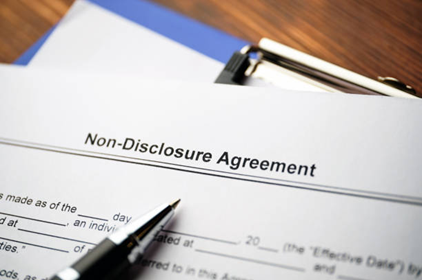- Hyderally & Associates P.C | Employment Lawyers NJ, NY
- (973) 509-8500
- tyh@employmentlit.com
What if My Employer is Violating Pandemic-Related Guidance?
Has the Pandemic Changed Your Work Duties? You’re Not Alone!
August 2, 2020NJDCR Finds Probable Cause for Claims of Race and “Reverse” Age Discrimination
August 6, 2020By Jennifer Vorih, Esq., Ty Hyderally, Esq.
New Jersey Governor Phil Murphy has issued a number of Executive Orders since the COVID-19 pandemic was declared. The CDC and various other government agencies have issued guidance which relate to conduct in the workplace, as well. With all of the confusion and upheaval regarding the need for social distancing, face masks, and working from home, it is not surprising that every employer seems to take a different position on these issues. That may leave employees in Montclair and throughout New Jersey wondering when they should obey their employers and when they should speak up about possible violations of guidance and/or Executive Orders.
Employees in New Jersey can rely on the State’s whistleblower law, the Conscientious Employee Protection Act (CEPA), regarding many such issues. CEPA prohibits employers from retaliating against employees – firing them or taking other adverse employment actions against them – for objecting to or refusing to participate in an activity, policy, or practice which the employee reasonably believes is “incompatible with a clear mandate of public policy concerning the public health, safety or welfare.”
Governor Murphy’s Executive Orders regarding the pandemic would constitute clear mandates of public policy regarding public health. These Executive Orders contain directives such as the requirement to maintain social distance and to wear face coverings when social distancing is not feasible. New Jersey’s Road Back Plan also includes the requirement that, even in Phase 3, employees who can work from home should do so. Thus, for instance, an employer cannot retaliate against employees for objecting to or refusing to participate in the employer’s practice of allowing more employees in a store than can maintain social distancing. Nor can employers retaliate against employees for requesting to continue to work from home when feasible.
While New Jersey’s Executive Orders are clear mandates of public policy, it is less clear what types of guidance from government agencies would be considered such. This is especially so because, due to our ever-increasing knowledge and understanding of COVID-19, the guidance provided has changed over time, and will certainly continue to change. In addition, many of the government agencies have been very careful to state that their guidance contains mere recommendations. For instance, the Guidance on Returning to Work, from the Occupational Safety and Health Administration (OSHA), provides the following language on the cover page:
This guidance is not a standard or regulation, and it creates no new legal obligations. It contains recommendations as well as descriptions of mandatory safety and health standards. The recommendations are advisory in nature, informational in content, and are intended to assist employers in providing a safe and healthful workplace.
https://www.osha.gov/Publications/OSHA4045.pdf
However, such guidance may be useful evidence to show that the policy or practice in question is in violation of a clear mandate of public policy, particularly if the same “recommendation” is found in guidance from several different agencies, and/or also required by an Executive Order.
These issues are still largely uncharted territory in our “new normal” and it remains to be seen what precedents New Jersey courts will set as employees begin to seek redress for employers’ failure to abide by pandemic guidelines.
This blog is for informational purposes only. It does not constitute legal advice, and may not reasonably be relied upon as such. If you face a legal issue, you should consult a qualified attorney for independent legal advice with regard to your particular set of facts. This blog may constitute attorney advertising. This blog is not intended to communicate with anyone in a state or other jurisdiction where such a blog may fail to comply with all laws and ethical rules of that state of jurisdiction.

